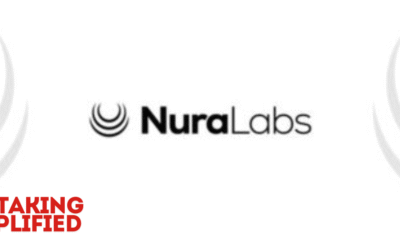Lifestyle
Leaving jobs without notice becomes a trend

Photo by Nik
A growing trend among young professionals is the rejection of the traditional two weeks’ notice when resigning from a job. Instead, they’re opting for immediate departures, often sharing their experiences in real-time videos that garner millions of views.
This phenomenon raises questions about the evolving perceptions of professional courtesy and the long-term implications of such abrupt exits. A.J. Mizes, a former Facebook executive turned career coach and CEO of The Human Reach, argues that while the allure of instant gratification is understandable, abandoning the two weeks’ notice can harm one’s professional network and future opportunities.
Social Media’s Influence on Career Decisions
The hashtag #QuitTok has gained traction on TikTok, featuring users who document their resignations live. These videos range from filming the moment they hit “send” on a resignation email to capturing tense conversations with managers. The content often highlights feelings of relief and empowerment, resonating with viewers who may feel trapped in unfulfilling jobs.
For instance, a viral video by a young retail worker shows her quitting mid-shift due to workplace stress. The clip amassed over 2 million views, sparking a debate in the comments about employee rights and employer responsibilities. While such videos create a sense of community among dissatisfied workers, they also encourage a departure from traditional professional practices.
The Importance of the Two Weeks’ Notice
“The truth is, a two weeks’ notice is an imperative communication that highlights respect for both your former employer and your network,” says A.J. Mizes. He emphasizes that leaving a job without notice can burn bridges that took years to build. “When you’re ready to leave a job, it’s the end of that chapter and the start of another. The prospect of something new is exciting, I totally get that. But make sure you’re not burning the chapter you’re leaving on the way out. Leaving a two weeks’ notice is more than just a professional courtesy; it’s a bridge that keeps the network you built alive.”
Mizes compares the act of leaving without notice to abruptly departing a friend’s home. “Let me ask you this: when you’re flying home after visiting a friend, would you just leave them without notice? Of course not! You’d thank them for having you, tell them you enjoyed your time, then depart. The same should happen when leaving a job.”
Professional Risks of Abrupt Departures
While the immediate gratification of quitting on the spot may be tempting, it can have lasting repercussions. Employers may view sudden resignations as unprofessional, potentially affecting references and future job prospects. In industries where networks are tight-knit, reputations can follow professionals throughout their careers.
According to a 2022 survey by LinkedIn, 62% of hiring managers consider an employee’s manner of departure when evaluating potential hires. Moreover, a study by the Harvard Business Review found that employees who left previous positions without notice were 25% less likely to receive positive references.
Career consultant Elena Gomez notes, “In the age of digital footprints, your professional actions are more visible than ever. Quitting without notice might offer a momentary sense of liberation, but it can close doors you didn’t even know existed.”
The Human Reach: Guiding Thoughtful Career Transitions
Recognizing the challenges modern professionals face, The Human Reach offers coaching designed to help individuals navigate career changes without damaging their professional relationships. “So many people don’t realize that waking up and dreading your day ahead is not normal,” Mizes explains. “Our goal is to help professionals find their purpose again and transition smoothly into roles that align with their passions.”
The Human Reach focuses on:
- Career Clarity: Assisting clients in identifying what truly motivates them.
- Strategic Networking: Teaching how to maintain and leverage professional relationships.
- Skill Enhancement: Providing tools to increase marketability, aiming for at least a 25% salary increase.
- Mindful Transitioning: Encouraging respectful departures to preserve one’s professional reputation.
“Leaving a job can be bittersweet, but you want to make sure you leave on the right foot,” says Mizes. “This not only reflects well on you but also keeps your network intact, which is invaluable in the long run.”
Balancing Personal Well-being with Professionalism
It’s important to acknowledge that some work environments are toxic or detrimental to mental health, and immediate departure may seem like the only option. Mental health advocate and psychologist Dr. Maya Patel advises, “While your well-being should always come first, consider seeking professional advice before making abrupt decisions. There might be ways to address workplace issues without jeopardizing your future career.”
Dr. Patel adds that documenting workplace grievances and discussing them with HR can sometimes lead to resolutions that benefit both the employee and the employer. If a decision to leave is made, providing notice can still be part of a self-care strategy that doesn’t harm professional relationships.
The Evolving Workplace Landscape
The trend of quick quitting reflects broader shifts in the workplace. The rise of remote work, the gig economy, and changing attitudes toward employer-employee relationships contribute to a more fluid job market. Younger generations prioritize work-life balance and personal fulfillment over long-term loyalty to a single employer.
A report by Deloitte indicates that 49% of Millennials and Gen Z anticipate changing jobs within the next two years. This mobility underscores the importance of maintaining a strong professional network. “Even if you don’t plan to stay long-term, how you leave a job can impact future opportunities,” Mizes warns.
While social media platforms like TikTok amplify the voices of those advocating for immediate resignation without notice, it’s crucial to consider the long-term implications of such actions. The immediate relief may be overshadowed by future challenges in career advancement.
“This is why I started The Human Reach—to remind people that a career is more than just a paycheck; it’s about helping them find their purpose again,” says Mizes. “But it’s also about navigating changes in a way that honors your professional relationships.”
Before joining the #QuitTok trend, professionals might benefit from reflecting on their long-term goals and the value of their networks. Providing a two weeks’ notice remains a standard practice that demonstrates respect and foresight, qualities that are always in demand in the professional world.
In an ever-evolving job market, balancing personal well-being with professional etiquette can set the foundation for sustained career success. As Mizes aptly puts it, “Make sure you’re not burning the chapter you’re leaving on the way out.”
-

 Press Release6 days ago
Press Release6 days agoNura Labs Files Revolutionary Patent: AI-Powered Wallet Solves the $180 Billion Crypto Staking Complexity Crisis
-

 Press Release4 days ago
Press Release4 days agoGlobal Compound Feeds and Additives Industry Report: Market Expansion and Competitive Insights to 2035
-

 Technology4 days ago
Technology4 days agoWhat to Know Before Switching Cell Phone Network Services in 2025
-

 Press Release3 days ago
Press Release3 days agoCrypto WINNAZ Launches First On-Chain Yield Engine for Meme Coins, Enabling 20x–300x Returns














